Piano Evolution: From Classical to Contemporary
3 min read
The piano is one of the most significant instruments in modern culture. Whether pounding out the driving beat of a pop song or subtly embellishing a cinematic score, the piano’s timbre and range have ensured its place at the forefront of musical creation for centuries. In this blog post, we examine the evolution of the piano and its role in popular music.
Piano Roots: Classical to Iconic Instrument
The piano first gained popularity in the 18th century due to its expressive dynamic range, vastly surpassing that of the harpsichord. Composers and performers such as Beethoven, Chopin and Liszt elevated the instrument to the central soloist of the Romantic period, with techniques and styles that continue to influence pianists today.
Pop Culture & Iconic Musicians
The piano has continued to evolve as the world has changed around it. A mainstay of the concert stage and music halls, the piano has become a symbol of culture and learning, present in jazz clubs, living rooms and schools everywhere.
Jazz & Blues: The Piano Finds Its Voice
Twentieth century jazz musicians, including legends like Thelonious Monk and Duke Ellington, transformed the piano with a mix of syncopated rhythms, improvisation and experimentation. The piano broke from its role as accompaniment, finding a voice that could cross musical styles and genres.
Pop & Rock: The Piano Goes Mainstream
The piano may not have had the popularity of guitars and bass in rock, but pianists and songwriters from Elton John to Alicia Keys and Adele kept it in the spotlight. Iconic intros such as John Lennon’s “Imagine”, “Bohemian Rhapsody” by Queen and Adele’s “Someone Like You” are some of the most instantly recognisable openings in popular culture.
Digital Revolution: The Modern Piano
Instruments such as synthesizers, MIDI controllers and digital pianos, combined with sampling and effects technology, have expanded the piano’s role into electronic music. From building textured soundscapes to futuristic tonal sound design, the piano is a major instrument in modern music production, even for producers with no physical piano in their setup.
Acoustic Pianos: Timeless Authenticity
For all the advances in digital production, some musicians still prefer the feel, weight and resonance of an acoustic instrument. Songwriters especially value that physical connection to the instrument, sparking moments of creative inspiration.
If buying a musical instrument to support the development of your songwriting or production for many years to come, then taking the time to explore a wide range of high-quality acoustic pianos is the ideal way to find the perfect instrument for you.
Retailers such as Broughton Pianos understand the needs of musicians, and are on hand to provide the support and advice that helps creative artists to find the perfect instrument for their own performance and style.
Conclusion: Piano Evolution Continues
The piano is one of those rare instruments that can be both traditional and cutting edge. From its strings and hammer action to digital samples and MIDI files, the piano remains in a league of its own. The instrument’s many adaptations and forms are sure to continue evolving as music itself changes.
::: RenownedForSound.com’s Editor and Founder –
Interviewing and reviewing the best in new music and globally recognized artists is his passion.
Over the years he has been lucky enough to review thousands of music releases and concerts and interview artists ranging from top selling superstars like 27-time Grammy Award winner Alison Krauss, Boyz II Men, Roxette, Cyndi Lauper, Lisa Loeb and iconic Eagles front man/songwriter, Glenn Frey through to more recent successes including Newton Faulkner, Janelle Monae and Caro Emerald.
Brendon manages and coordinates the amazing team of writers on RenownedForSound.com who are based in the UK, the U.S and Australia.



